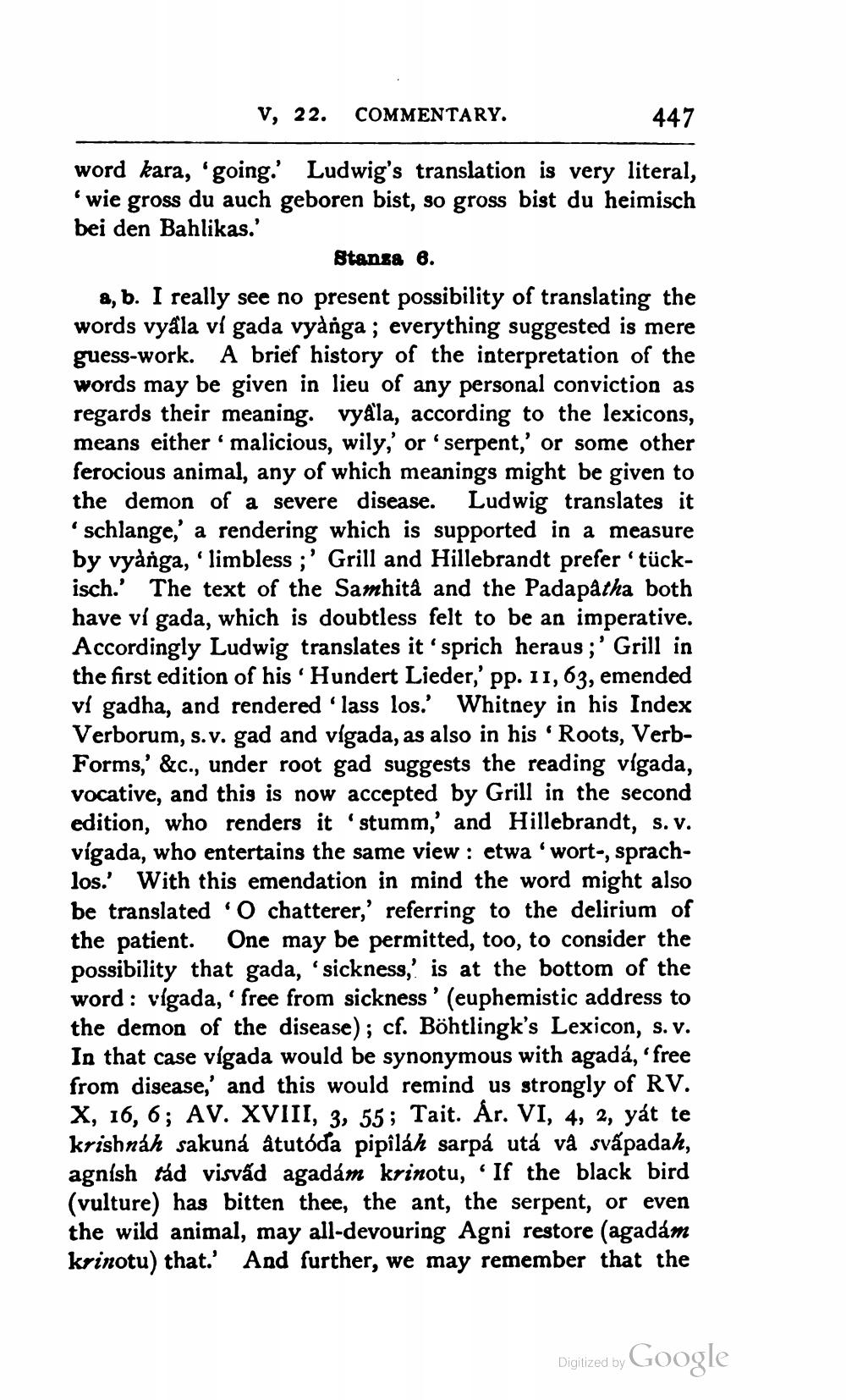________________
V, 22. COMMENTARY.
447
word kara, 'going.' Ludwig's translation is very literal,
wie gross du auch geboren bist, so gross bist du heimisch bei den Bahlikas.'
Stanza 6. 8, b. I really see no present possibility of translating the words vyåla vi gada vydrga ; everything suggested is mere guess-work. A brief history of the interpretation of the words may be given in lieu of any personal conviction as regards their meaning. vydla, according to the lexicons, means either 'malicious, wily,' or 'serpent,' or some other ferocious animal, any of which meanings might be given to the demon of a severe disease. Ludwig translates it 'schlange,' a rendering which is supported in a measure by vyånga, 'limbless ;' Grill and Hillebrandt prefer 'tückisch.' The text of the Samhita and the Padapatha both have ví gada, which is doubtless felt to be an imperative. Accordingly Ludwig translates it'sprich heraus ;' Grill in the first edition of his ‘Hundert Lieder,' pp. 11, 63, emended vi gadha, and rendered 'lass los.' Whitney in his Index Verborum, s.v. gad and vigada, as also in his 'Roots, VerbForms,' &c., under root gad suggests the reading vigada, vocative, and this is now accepted by Grill in the second edition, who renders it'stumm,' and Hillebrandt, s. v. vígada, who entertains the same view : etwa 'wort-, sprachlos. With this emendation in mind the word might also be translated 'O chatterer, referring to the delirium of the patient. One may be permitted, too, to consider the possibility that gada, 'sickness, is at the bottom of the word : vígada,' free from sickness' (euphemistic address to the demon of the disease); cf. Böhtlingk's Lexicon, s. v. In that case vigada would be synonymous with agadá, free from disease,' and this would remind us strongly of RV. X, 16, 6; AV. XVIII, 3, 55; Tait. Ar. VI, 4, 2, yát te krishnah sakuna atutóda pipilah sarpá utá và svấpadah, agnish tad visvad agadám krinotu, “If the black bird (vulture) has bitten thee, the ant, the serpent, or even the wild animal, may all-devouring Agni restore (agadám krinotu) that.' And further, we may remember that the
Digized by Google




